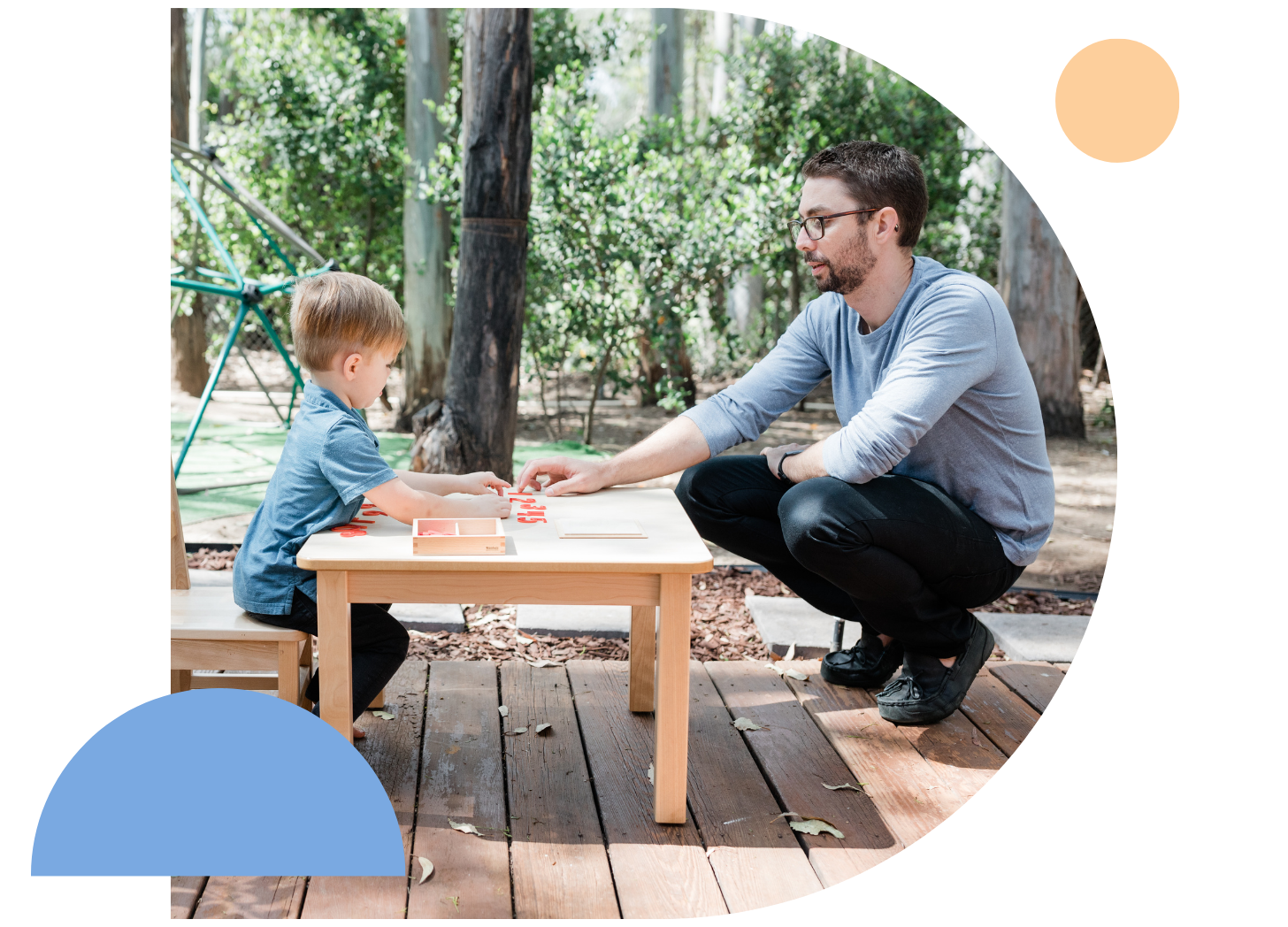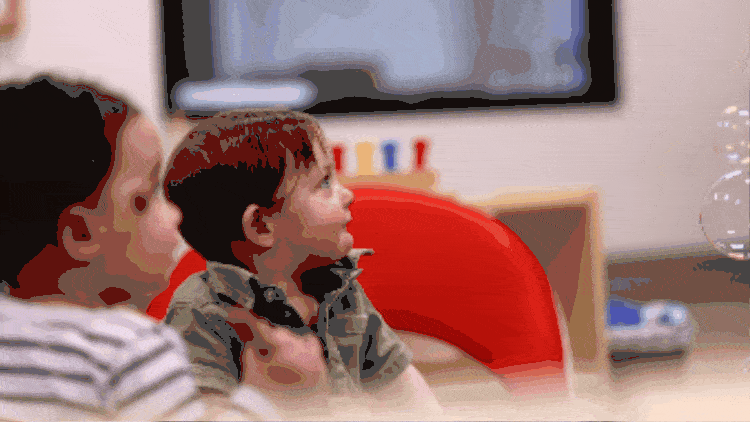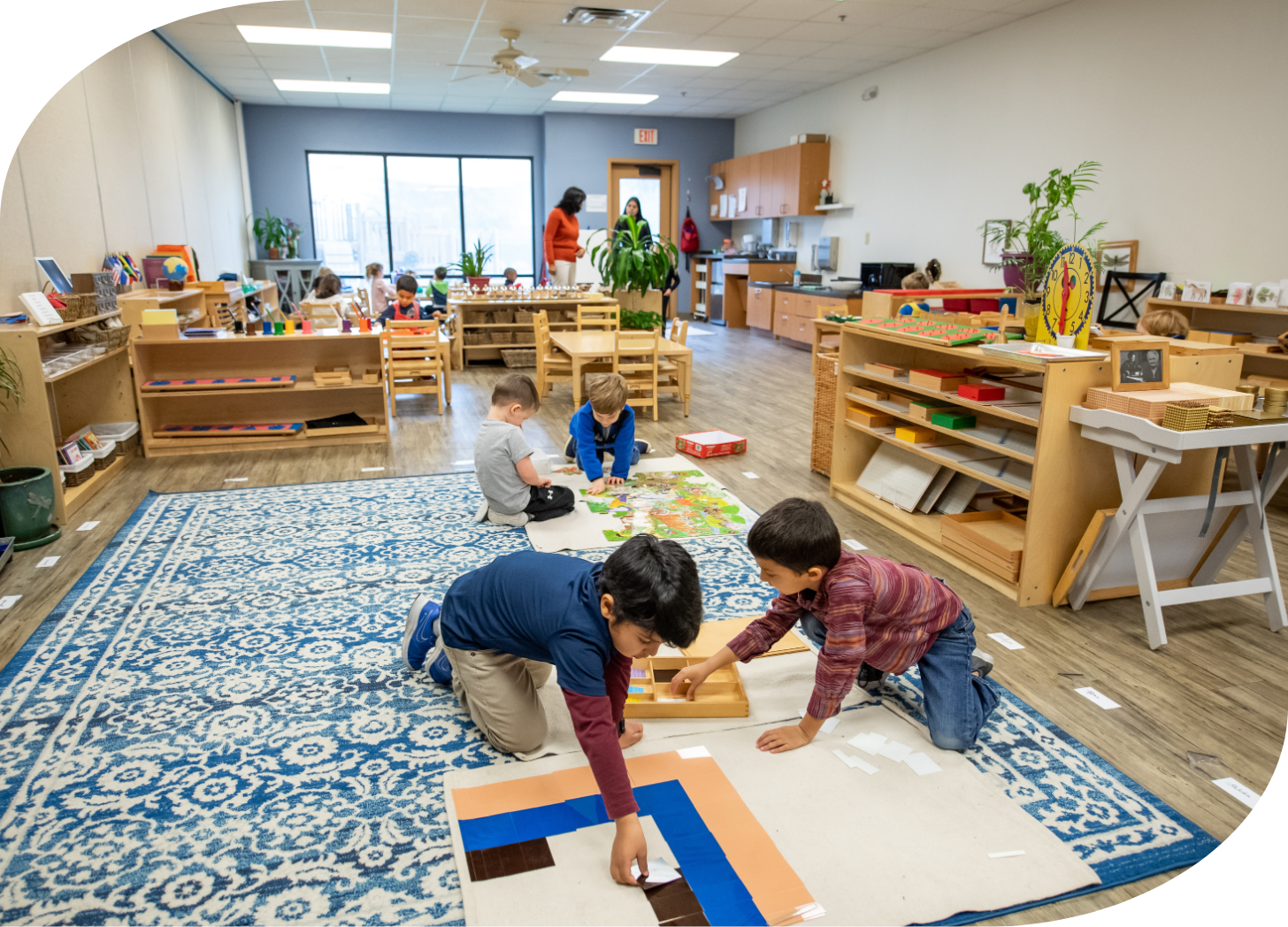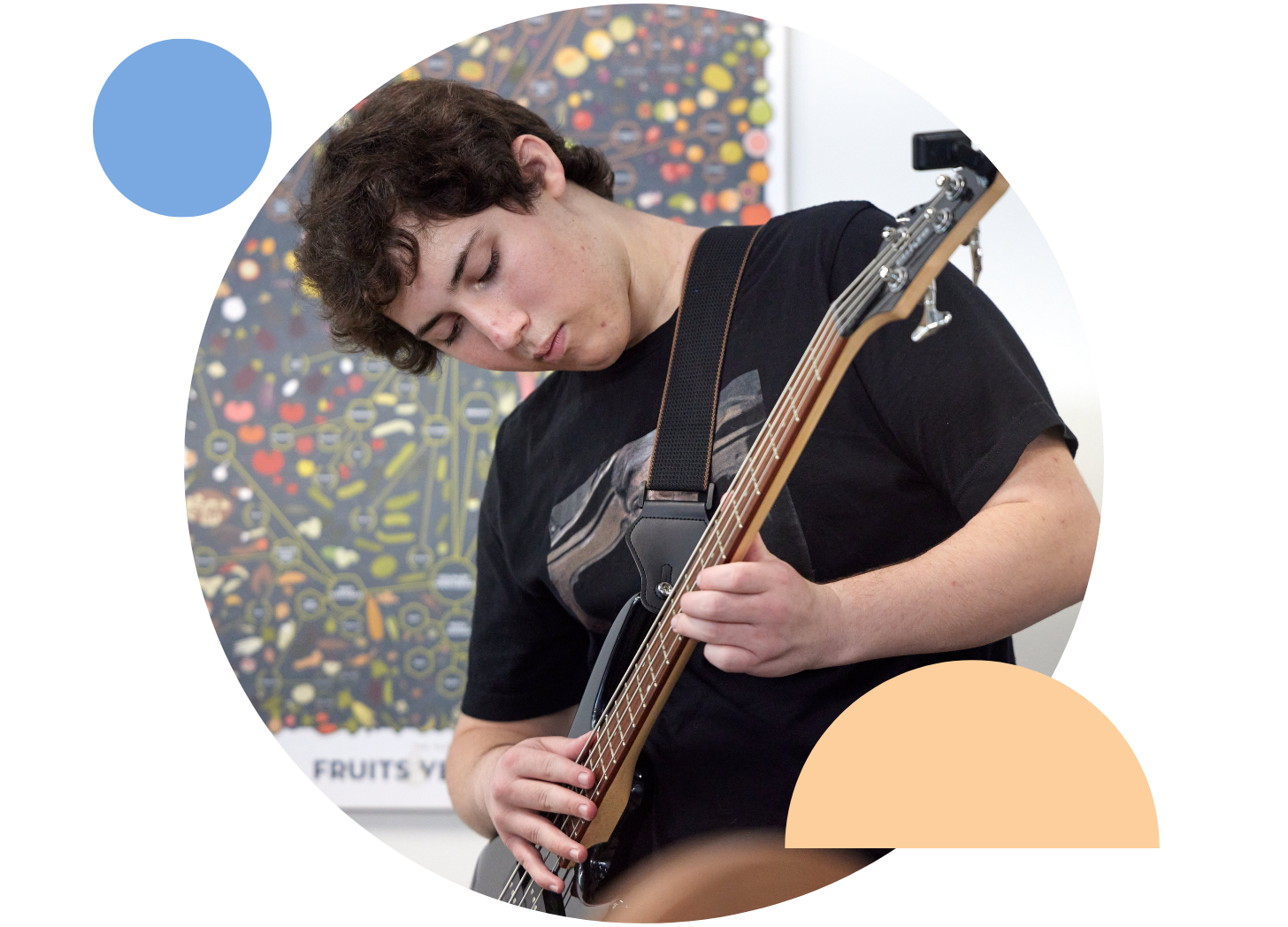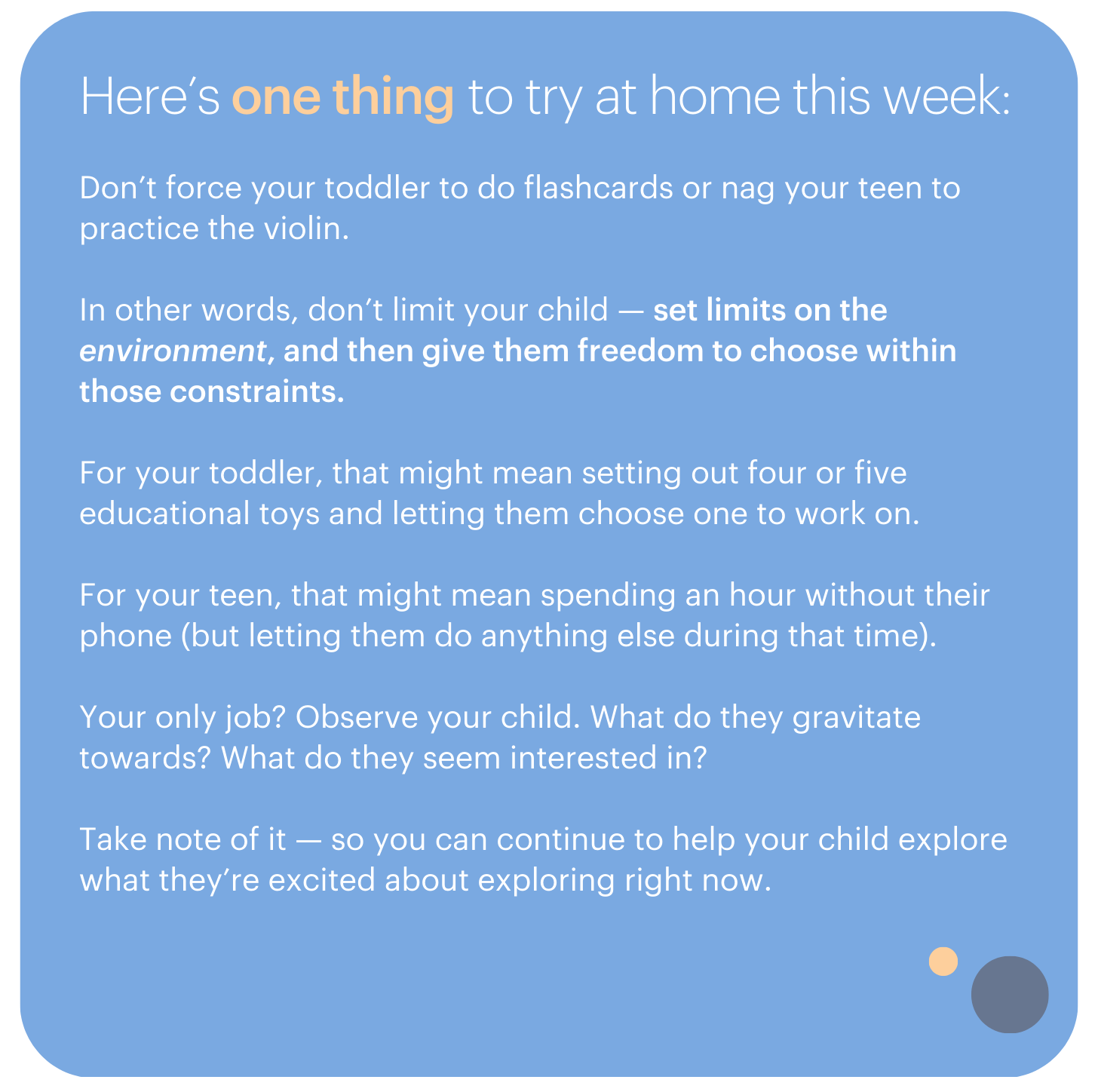What if my child won't do what's best for them?
When to trust their instincts and when to step in
When was the last time you felt a genuine, unfettered interest in something?
Maybe you read a brief article on a topic and decided to pick up an entire book about it. Or maybe you stumbled across a documentary that sent you down a rabbit hole.
For a few hours, you were swept up in learning.
As we age, this phenomenon seems to occur less and less. But for our children, it happens every day.
Almost anything can spark our kids’ interest — because life is new and exciting.
Young children want to know why the sky is blue, why cutting onions makes us cry, and how the TV works.
Older kids and teens want to learn how to make money and how to expand their social circles.
Because they’re humans. Their desire to learn is innate.
Our kids’ interests wax and wane, of course, but when we allow their fascination to guide them, the effort of learning becomes joyful.
Sadly, when children are told what they need to be interested in and when, we rob them of that joyful effort.
Learn about this, right now, for the next hour, just like everyone else.
And without the freedom to choose their interests, their childlike wonder swiftly fades.
We shouldn’t be forcing kids to participate
In well-functioning Montessori classrooms, kids are never forced to participate in group activities (like circle time).
Most children choose to participate, but often, a couple of students can be found lingering over an activity that has captured their full attention.
“By giving a child the choice to persist — to remain focused on a project rather than forcing him to stop — the environment prioritizes his developing discipline for deep work,” says Ray Girn, CEO of Higher Ground Education.
Ultimately, does it matter whether your child sings in a circle every day? Not really.
Because our true goal is to raise disciplined children — those who take charge of their own learning and their own lives.
And we can do that without employing force.
But doesn’t my child need to learn to do things they don’t like?
When parents hear that they shouldn’t force their children to do things, they often fear that they’ll wind up turning their kids into spoiled brats.
We want to raise disciplined children — that is, children with the capacity to do things they don’t want to do for their highest good.
Disciplined children…
Don’t give up when the going gets tough
Put effort into their studies and extracurriculars
Enjoy the process of practice
They understand that you don’t achieve success by doing things only when you feel like it.
So, how do we raise disciplined children without employing force?
In other words, is it safe to respect a child’s choices, agency, and interests — or will this lead to them being unable to do hard things?
According to Italian physician and educator, Maria Montessori, these things aren’t mutually exclusive.
We can honor our children’s humanity and guide them to develop inner discipline. Here’s how:
Effort can be enjoyable
Most of us were taught that we must choose between work and pleasure — putting in effort to achieve success or following our interests and passions.
But Montessori says interest and effort are two sides of the same coin. As she puts it:
“Man is not a machine. He acts when his interest, generosity, or enthusiasm is aroused.”
In other words, effort is implemented only when there is interest to fuel it.
Forcing our children to do things won’t turn them into disciplined adults.
Study after study has proven that kids need to feel a sense of control over their actions to develop focus and motivation.
“There’s no need for a child to practice motivation by duty, guilt, and white-knuckling,” says Matt Bateman, Vice President of Pedagogy at Higher Ground Education.
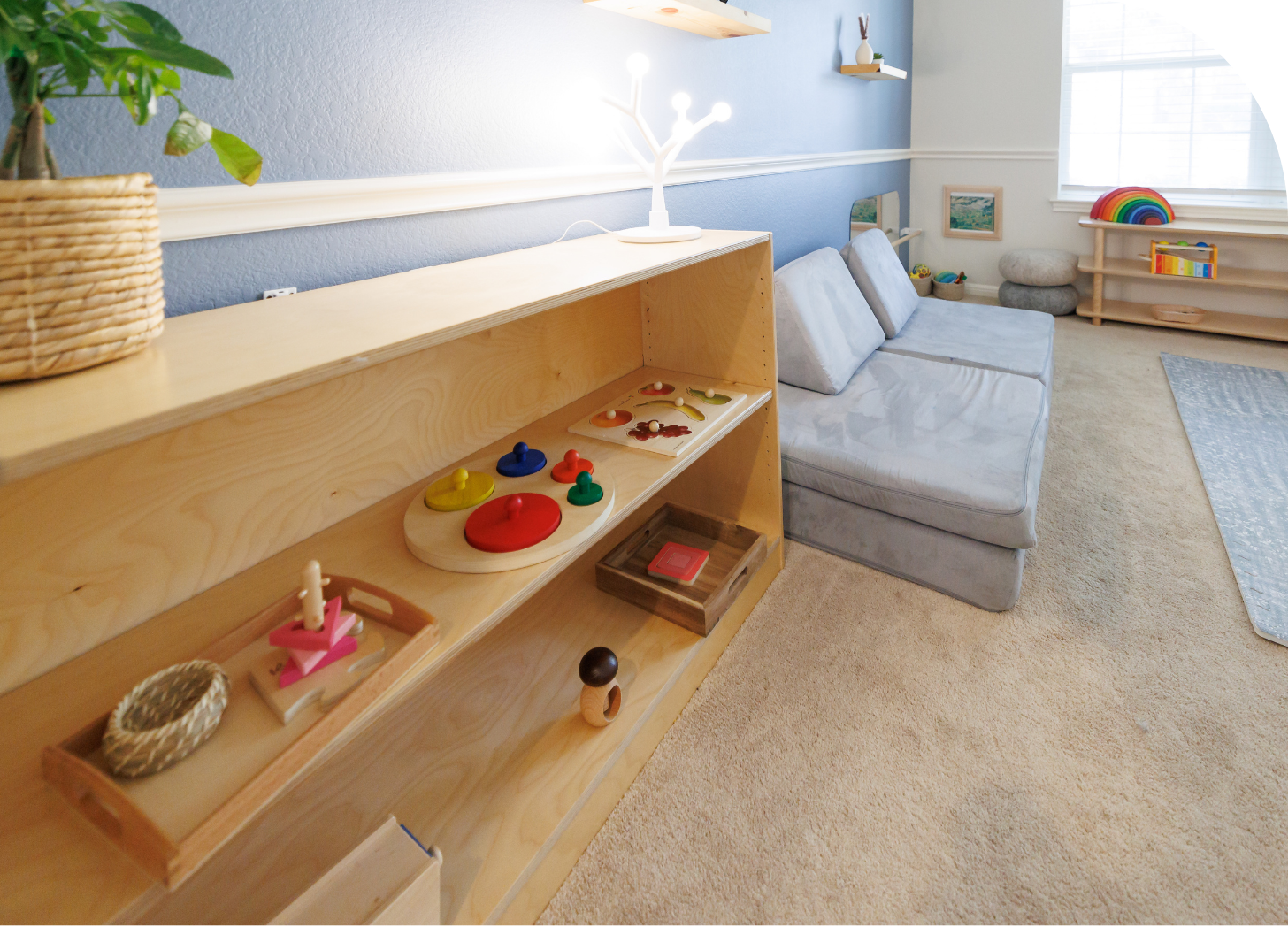
The Montessori environment is prepared in advance to be filled with activities that enrich and enhance a child’s learning.
In this environment, it’s safe to honor their intuition — no matter what they choose to do (or not do).
And when kids are left to their own devices, Montessori observed that children are intrinsically interested in “effortful work.”
Kids often choose activities that require discipline — when they’re given the freedom to choose, that is.
But what if my child can’t concentrate?
In her observations of children, Maria Montessori noted that children are capable of intense concentration.
But there’s a caveat.
“The child’s ability to concentrate for long periods of time hinged on his freedom,” says Samatha Westmoreland, a writer and Montessori education advocate.
To enter a flow state, children must be allowed to choose their own adventure.
To work (without interference) for as long as they please.
It is freedom — not force — that builds kids’ capacity to focus.
And when our children are truly interested in their pursuits, their lessons are retained.
In short, when we step out of the way, children willingly choose “deep work.” They don’t need to be coerced.
Which means you can trust that your child’s interests are exactly what they need to be learning about right now.





